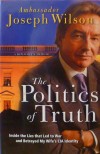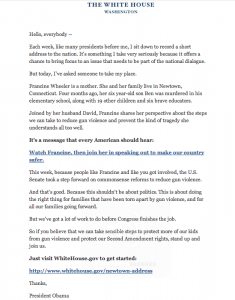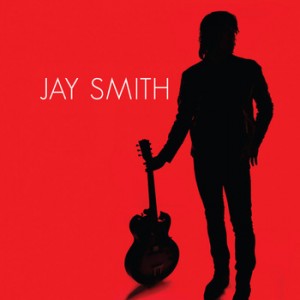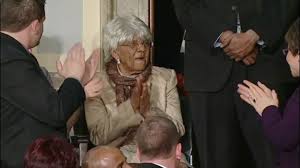Tonight MSNBC will broadcast “Hubris: Selling the Iraq War,” narrated by Rachel Maddow, based on the 2006 book of the same name by Michael Isikoff and David Corn. Coming nearly ten years after the US invaded Iraq, on March 19, 2003, I’ll be watching with great interest.
 I retain vivid recall of how the Bush administration pushed the country, and as much of the world as it could hector along with them, into invading that country. It was a mad, misguided rush, one that I was upset about at the time, and soon after became involved with personally and professionally. In July 2003, after Valerie Plame’s role as a CIA official was revealed in a notorious column by Robert Novak, I contacted Ambassador Joseph C. Wilson IV, Plame’s husband. In the months before the invasion of Iraq, he had become a vocal critic of the rush to war, publishing a number of Op-Ed columns that drew on his experience of twenty-five years as an American diplomat, including his service as the last American official to meet with Saddam Hussein before the beginning of the Gulf War in 1991. In my role as an editorial executive with Carroll & Graf Publishers I was referred to Wilson by publishing friend, Barbara Monteiro. I contacted Joe and found he was interested in writing a book that would chronicle his years as an American foreign service officer; more recent events involving his trip to Niger, where he was sent by the CIA to investigate the claim that Iraq had sought yellowcake from that African country; and the unprecedented exposure of his wife’s CIA employment. Joe, as I soon came to know him, agreed to the offer I made, a contract was quickly signed, and he began diligently working on the manuscript.
I retain vivid recall of how the Bush administration pushed the country, and as much of the world as it could hector along with them, into invading that country. It was a mad, misguided rush, one that I was upset about at the time, and soon after became involved with personally and professionally. In July 2003, after Valerie Plame’s role as a CIA official was revealed in a notorious column by Robert Novak, I contacted Ambassador Joseph C. Wilson IV, Plame’s husband. In the months before the invasion of Iraq, he had become a vocal critic of the rush to war, publishing a number of Op-Ed columns that drew on his experience of twenty-five years as an American diplomat, including his service as the last American official to meet with Saddam Hussein before the beginning of the Gulf War in 1991. In my role as an editorial executive with Carroll & Graf Publishers I was referred to Wilson by publishing friend, Barbara Monteiro. I contacted Joe and found he was interested in writing a book that would chronicle his years as an American foreign service officer; more recent events involving his trip to Niger, where he was sent by the CIA to investigate the claim that Iraq had sought yellowcake from that African country; and the unprecedented exposure of his wife’s CIA employment. Joe, as I soon came to know him, agreed to the offer I made, a contract was quickly signed, and he began diligently working on the manuscript.
Fortunately, when Joe retired from the State Department a few years before the war fever he had sat for a series of lengthy interviews with an interlocutor from State–a good custom at the agency–setting his memories down in a proper oral history. He drew on this aide-memoir as he composed the diplomatic memoir that made up about 1/3 of the final manuscript. As for his trip to Niger, the positions he took in opposition to the Bush administration while they were twisting intelligence and co-opting media during he run-up to the war, and events after the invasion, including the outing of his wife, he had little need of reminders. Joe delivered a very readable manuscript, and with a team of colleagues at Carroll & Graf I edited this draft, and Joe made key revisions to it. Meantime, we also kept a keen eye on breaking developments in the investigation in to how and why Valerie’s CIA employment had become a subject that administration officials felt free to discuss openly with reporters. Getting the manuscript ready for the printer was like aiming an arrow at a moving target.
The launch for the book, The Politics of Truth–A Diplomat’s Memoir: Inside the Lies that Led to War and Betrayed My Wife’s CIA Identity, was in early May 2004, less than a year after Novak’s fateful column. Joe went on the TODAY show, Charlie Rose, and he did a ton of public radio shows. I went with him to many of those interviews, sat in green rooms with him, fancy and plain. It was as cool when he did Democracy Now with Amy Goodman, as when we went to Rockefeller Center one morning before 7 AM, to do TODAY . His most interesting TV appearance was on “Countdown with Keith Olbermann,” when KO shared with Joe and the audience White House talking points supposedly rebutting the book. These had been sent to virtually all news outlets, including even to programs like Countdown, ones that weren’t having any of the BS from the administration. Olbermann brandished the sheaf of talking points, like a sword. With Joe’s opposition to the war, and most of all the fact he’d been to Niger and vigorously debunked the fraudulent yellowcake claim, Joe had stepped across a tripwire that loosed Dick Cheney and Scooter Libby like a pack of dogs, with Karl Rove and Ari Fleischer chasing close behind. None of their talking points refuted Joe’s claims. John Dean gave the book a great review in the New York Times Book Review and it became a national hardcover bestseller in the Times and Publishers Weekly for about six weeks. This was Dean’s opening paragraph:
“THIS is a riveting and all-engaging book. Not only does it provide context to yesterday’s headlines, and perhaps tomorrow’s, about the Iraq war and about our politics of personal destruction, but former Ambassador Joseph Wilson also tells captivating stories from his life as a foreign service officer with a long career fostering the development of African democracies, and gives us a behind-the-scenes blow-by-blow of the run-up to the 1991 Persian Gulf war. As the top American diplomat in Baghdad, Wilson was responsible for the embassy, its staff and the lives of other Americans in the region – not to mention the freeing of hostages in Kuwait. He goes on to relate his eye-to-eye encounter with the wily sociopath Saddam Hussein; his return home to be greeted as a ‘true American hero’ by President George H. W. Bush; his stint advising America’s top military commander in Europe; and his time as head of the African affairs desk of Bill Clinton’s National Security Council, where he assembled the president’s historic trip to Africa while the ”Starr inquisition” into the Monica Lewinsky affair developed. Along the way he fell in love with and married a C.I.A. covert operative – a ”’willowy blonde, resembling a young Grace Kelly.”’
I should add the book was also a plea for Americans to be actively engaged in their citizenship, and to be unafraid if it became necessary to call one’s government to account. In 2010 The Politics of Truth and Valerie’s 2008 book Fair Game: How a Top CIA Agent was Betrayed by Her Own Government, were jointly adapted for the feature film, “Fair Game,” with Sean Penn and Naomi Watts. I saw Joe and Valerie in NYC for a premiere reception and we have remained friends, more so than other authors I’ve published over the years. I just heard from Joe today. He and Valerie sat for interviews with the MSNBC producers and they will also be watching “Hubris” tonight. I hope you will be, too. Please feel free to leave comments here about the program, this post, and this period in our recent history. Joe and Valerie played a significant role in these events, bringing the Bush administration before the judgment of history for its deceptions. I am proud of the role I had in bringing their story before the public. To read about other aspects of this case, especially the federal trial of Scooter Libby for his obstruction of justice, and the book I brought out in 2008, The United States v. I. Lewis Libby, along with Patrick Fitzgerald’s legacy as a federal prosecutor, please see this post.
 Readers of this blog may recall earlier posts in which I explained that in the mid-2000s I was a colleague for several years at Avalon Publishing Group with David Wheeler, whose 6-year old son Ben was a first-grade student at Sandy Hook Elementary School, one of the twenty children murdered in Newtown, CT, last Dec. 14. With heavy heart but much pride and encouragement I’ve watched over the past four months as David and his wife Francine, along with other Sandy Hook parents, have become activists for new laws that will diminish the likelihood of other similar tragedies occuring in the future. They and the other parents have met several times with President Obama and this week Francine was invited to deliver the administration’s weekly address. This would be the only time that someone other than the president or vice-president gave the weekly address. Last night NPR reported that Francine wrote the address with the help of David, and together they recorded it in the WH library. The Wheeler’s have vowed that their son’s life and death will have import and meaning, and they are working with great dedication to ensure this. I admire them and their older son Nate, and share their grief for Ben.
Readers of this blog may recall earlier posts in which I explained that in the mid-2000s I was a colleague for several years at Avalon Publishing Group with David Wheeler, whose 6-year old son Ben was a first-grade student at Sandy Hook Elementary School, one of the twenty children murdered in Newtown, CT, last Dec. 14. With heavy heart but much pride and encouragement I’ve watched over the past four months as David and his wife Francine, along with other Sandy Hook parents, have become activists for new laws that will diminish the likelihood of other similar tragedies occuring in the future. They and the other parents have met several times with President Obama and this week Francine was invited to deliver the administration’s weekly address. This would be the only time that someone other than the president or vice-president gave the weekly address. Last night NPR reported that Francine wrote the address with the help of David, and together they recorded it in the WH library. The Wheeler’s have vowed that their son’s life and death will have import and meaning, and they are working with great dedication to ensure this. I admire them and their older son Nate, and share their grief for Ben. To lend your voice to this effort, here’s the fact page the president mentions in his email.
To lend your voice to this effort, here’s the fact page the president mentions in his email.


